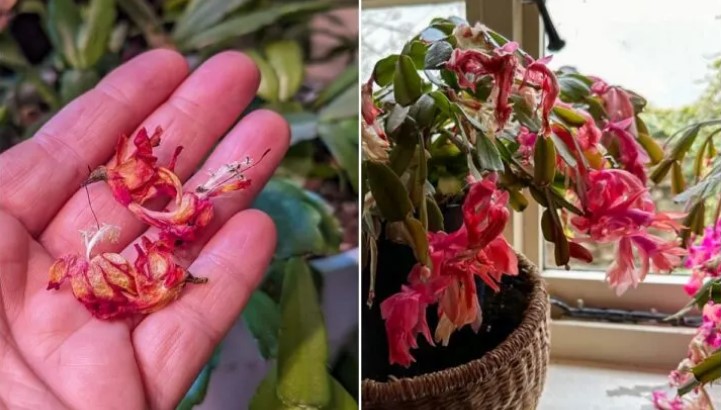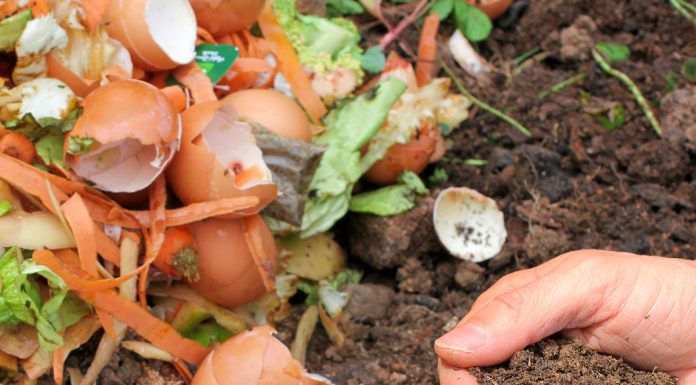You’ve taken down and disposed of your Christmas tree. The Christmas cookies are long gone. You’ve vacuumed up the confetti from New Year’s Eve. And your Christmas cactus blooms look as though they’ve seen better days. But what do you do with a holiday cactus after it flowers?
Just like we all need rest and a little post-holiday care, so do your Christmas and Thanksgiving cactus.
But I promise you, it’s nothing time-consuming or difficult. In fact, once your plant has bloomed, it will likely enter a short dormant period.
Here’s a quick rundown on what your plant needs – and doesn’t – when the holidays are finally over.
To Deadhead or Not?
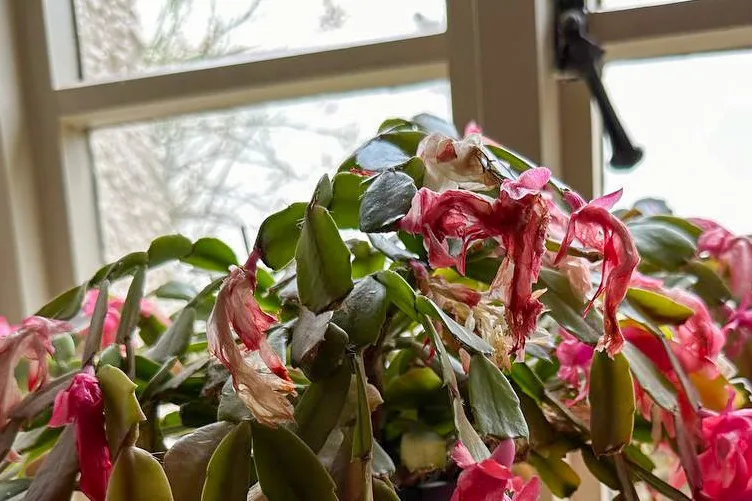
A common concern among those of us with Christmas cactuses is whether or not you need to deadhead the spent flowers.
That’s an easy one – no.
But you should do it anyway.
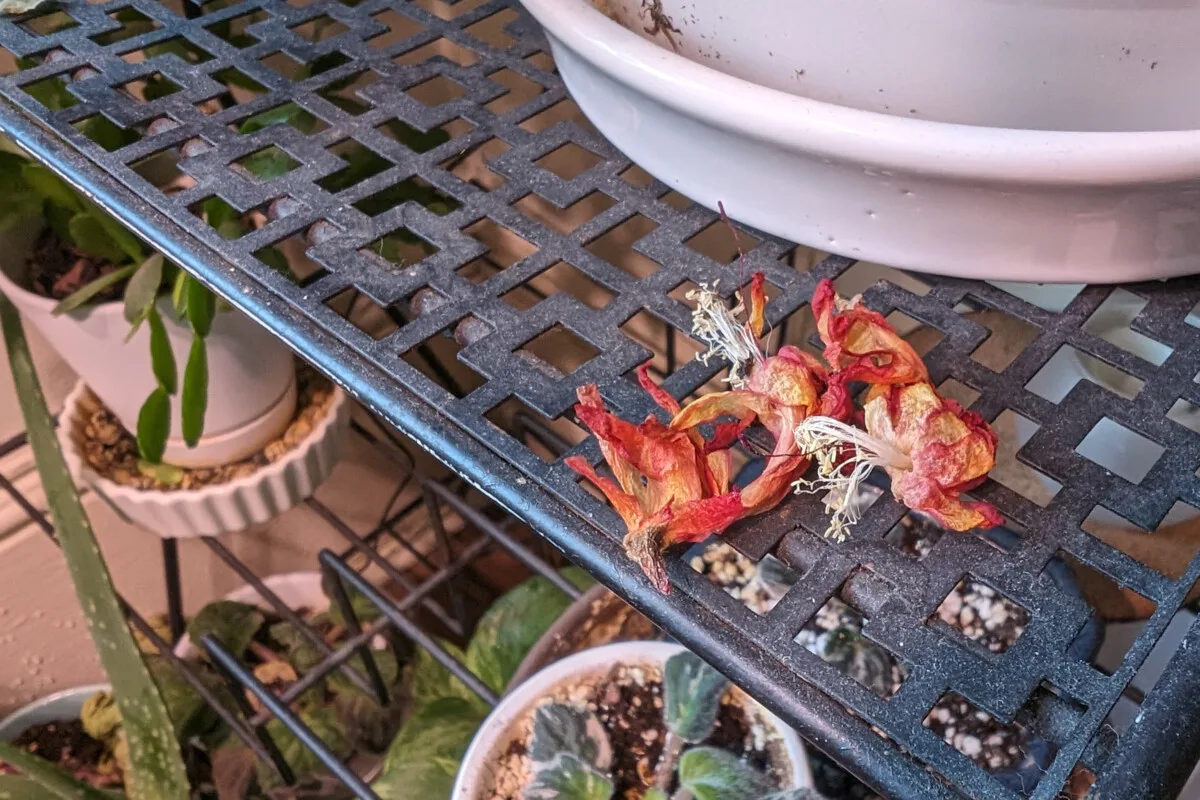 The only reason for deadheading is to encourage a plant to put out more blooms. Many annuals and some perennials benefit from deadheading because if you keep it up, they’ll put out more flowers. This makes sense for decorative plants out in your flower beds but not so much for your Christmas cactus.
The only reason for deadheading is to encourage a plant to put out more blooms. Many annuals and some perennials benefit from deadheading because if you keep it up, they’ll put out more flowers. This makes sense for decorative plants out in your flower beds but not so much for your Christmas cactus.
We already know Schlumbergeras have to go through a period of dormancy and cool temperatures before they will set buds. So, your Christmas cactus is a once-and-done bloomer.
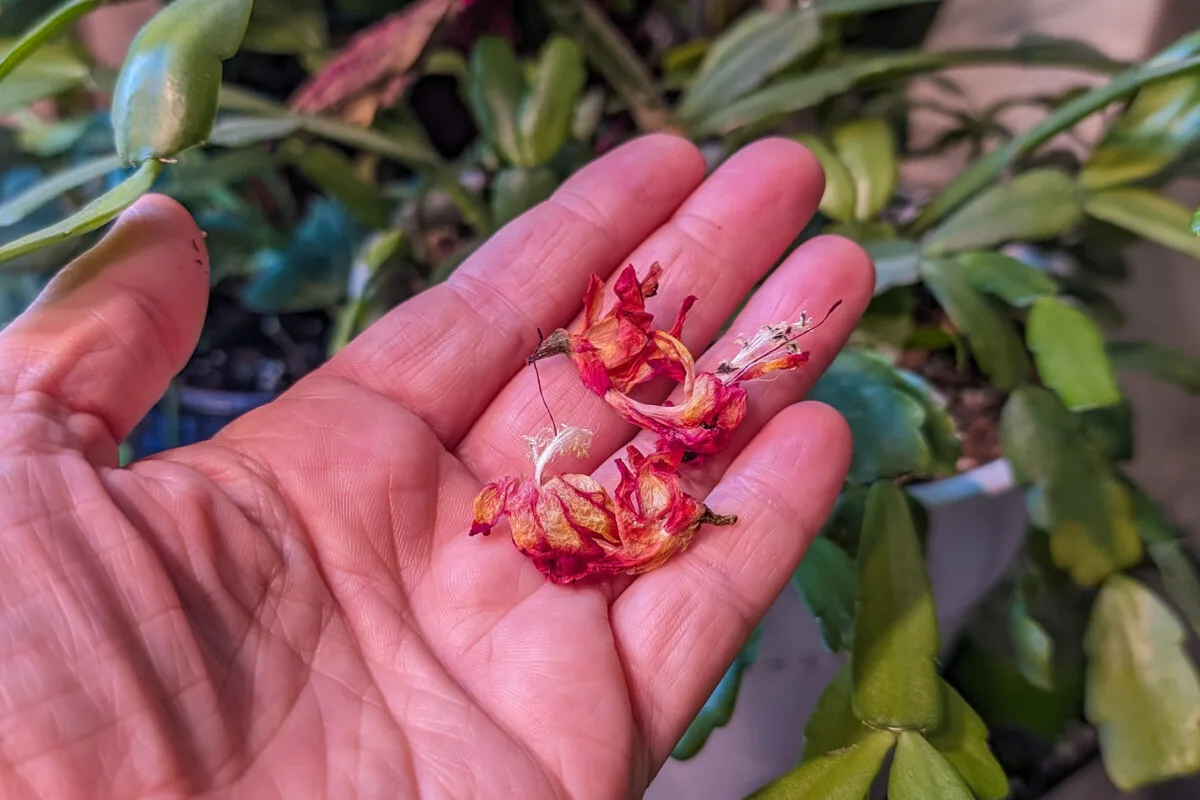 That being said, I have successfully encouraged my Christmas cactus to bloom again in the summer with a little extra effort on my part.
That being said, I have successfully encouraged my Christmas cactus to bloom again in the summer with a little extra effort on my part.
It’s not that hard to do and is kind of fun to do at least once.
Even though deadheading spent blooms won’t get you more blossoms, I still pull them off of my holiday cactus anyway. The blooms tend to get sticky as they fade. When they drop off the plant naturally, they stick to everything they land on — the plant, the floor, furniture, you get the idea. It’s kind of a pain trying to scrape them off if they sit for a while.
3 Things You Should Hold Off On
Once your holiday cactus has finished blooming for the season, it will enter a short dormant period of a few weeks before it begins its annual growth cycle. Your plant is a lot like you after the holidays. It just spent all of its energy putting on a big production, and now it needs to rest.
Water and Fertilizer
It’s important to remember that although the plant just used a lot of energy to create blooms, it already had the necessary nutrients stored up to do it. You may be tempted to reach for the fertilizer post-bloom, thinking your plant is depleted of nutrients. But because the plant goes dormant, it’s really not necessary. At least not yet.
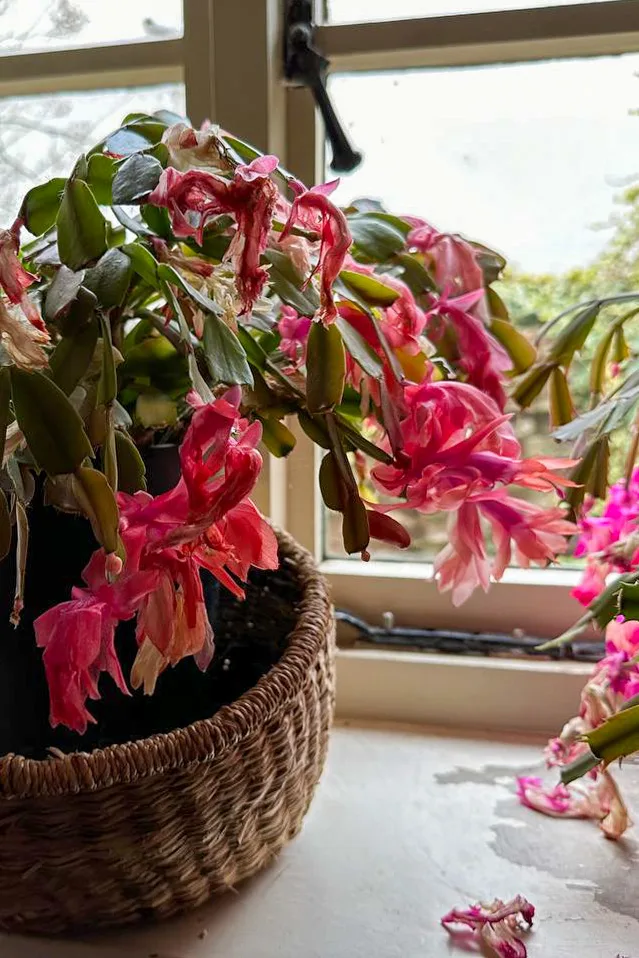
What I do for my holiday cactus is let them dry out quite a bit after the blooms have faded. Once the top two inches of soil are dry, I will water the plant, feeding it with ¼ strength organic liquid plant food.
And that’s that. Most of the time, I won’t even water it again until I start seeing new growth.
It’s important to remember that it’s still wintertime, and your plants need less water during these cool, short days while they are dormant. Overwatering happens more frequently in the winter and with worse consequences.
When you start to notice new growth on your plant in the form of tiny, new cladodes, then you can return to a regular feeding and watering routine.
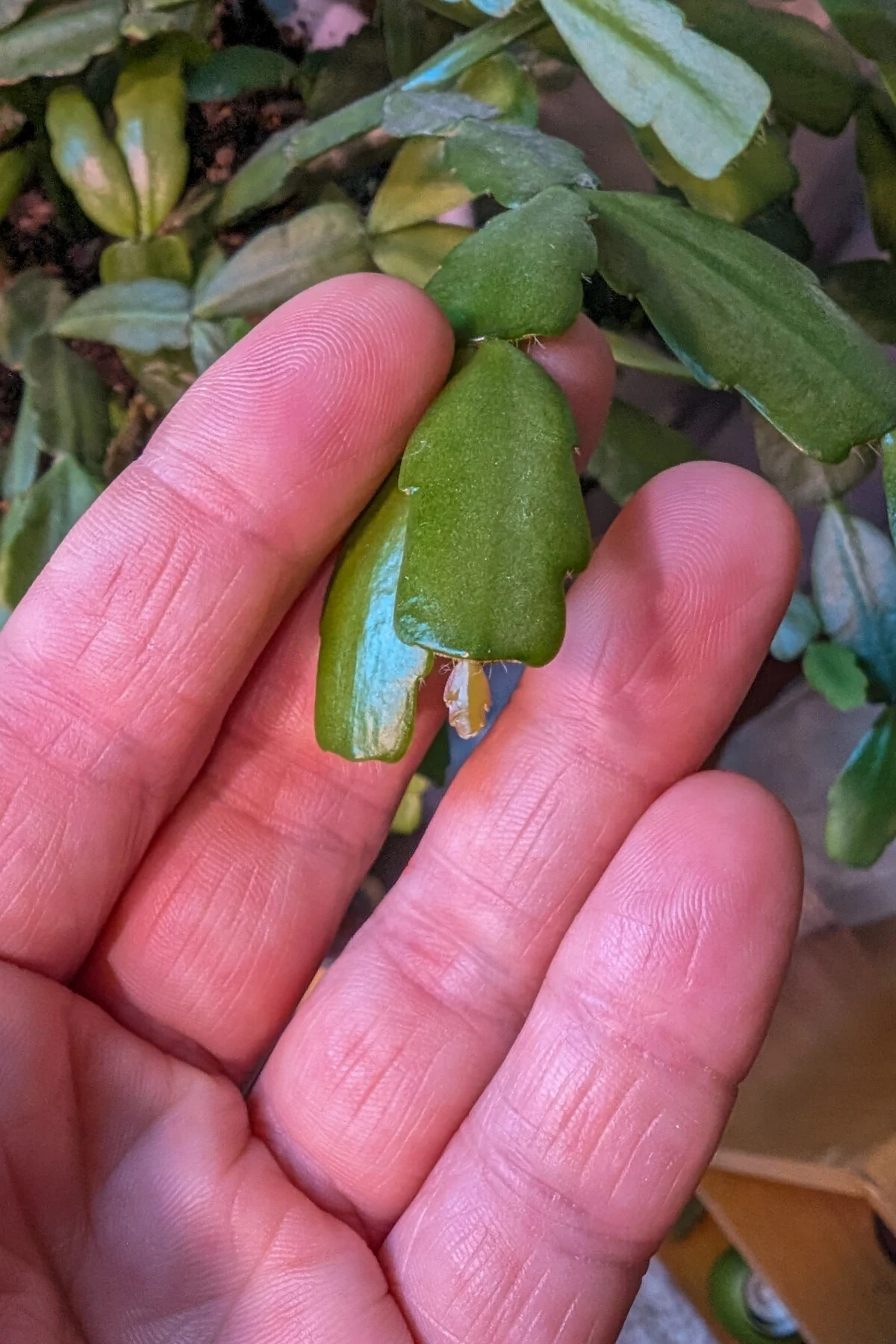
Repotting
Holiday cactuses do best when they are crowded in their pots. They don’t need to be repotted often; once every few years is fine. Eventually, your plant will reach a size where it’s necessary, but now is not the time to do it. Again, it’s just spent all of its stored energy creating blooms and will go dormant. You don’t want to stress the plant out by repotting. Wait until you’re several weeks into the active growing cycle to repot.
Propagation
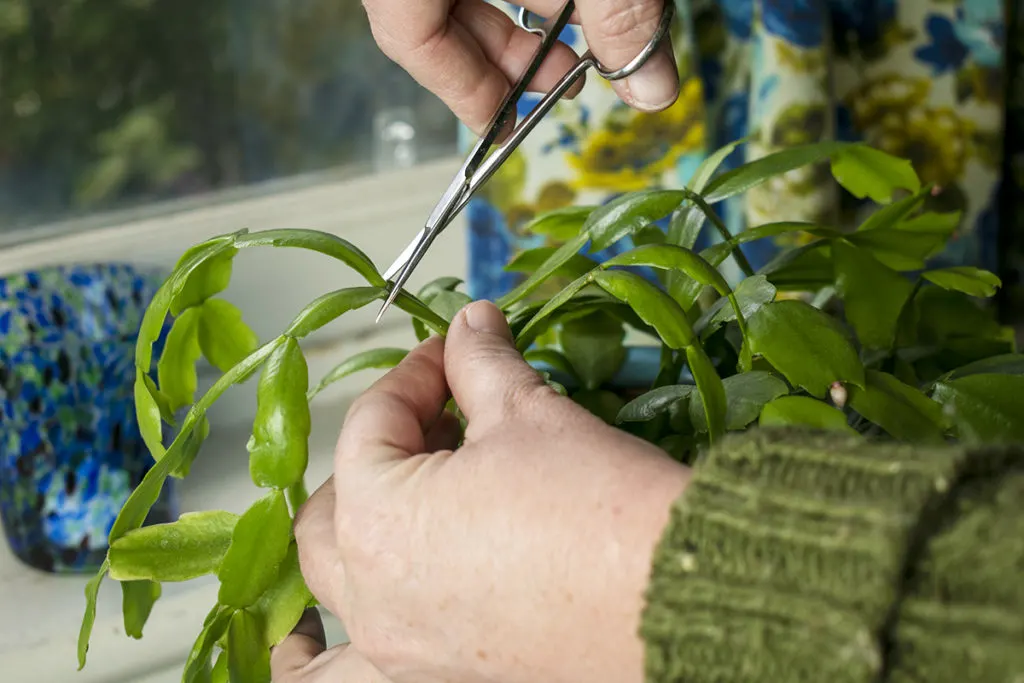
Likewise, hold off on pruning or taking plant cuttings to propagate immediately after your Christmas cactus has bloomed. The best time to propagate is during the growth cycle, as removing sections to propagate can help stimulate new growth.
The One Thing You Should Always Do for Your Christmas Cactus Post-Bloom
Give your plant a shower. Yup, you read that right.
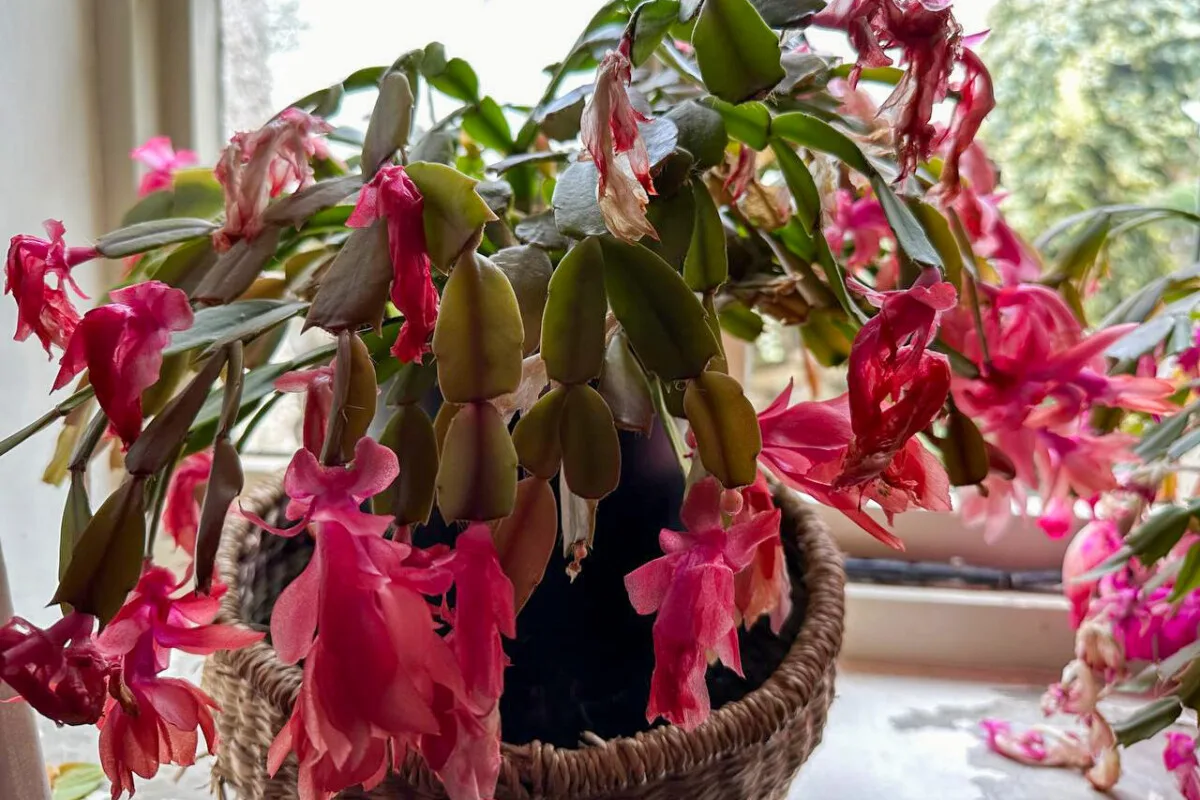
Now that I don’t have to worry about moving my Christmas cactus and having it drop buds, I can clean the leaves. I know it sounds a bit silly, but cleaning dust off of the plant is pretty important. As dust accumulates throughout the year, it can make it harder for the plant to absorb light for photosynthesis.
It’s a good idea to give all of your houseplants a wipe down at least once a year.
Because holiday cactuses go dormant after blooming, now is the best time to clean them. Once it starts its annual growth cycle, it will be squeaky clean and ready to absorb light.
Unfortunately, most Schlumbergera can be a real pain to clean because of their shape.
Each long waterfalling segment is made up of individual “leaf” segments called cladodes. Wiping down a Christmas cactus without snapping cladodes in half or breaking off entire segments can be tough if you’re dealing with a large plant.
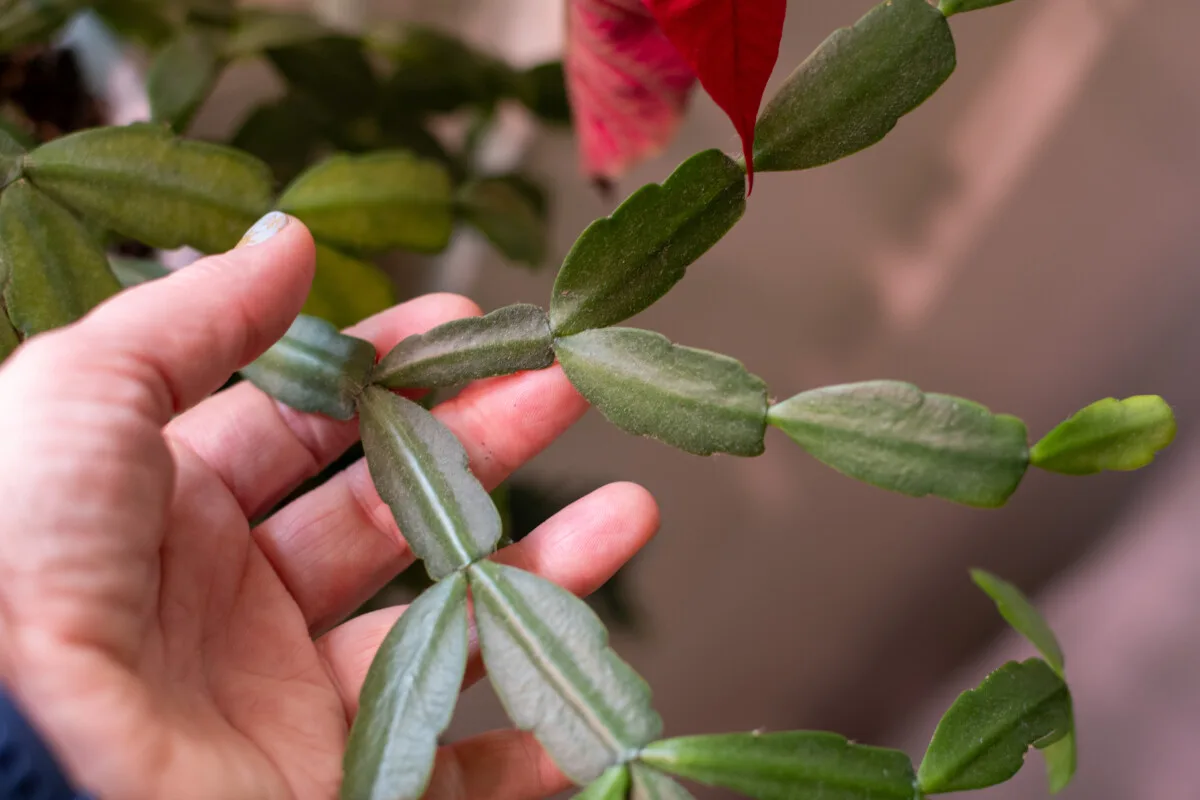
So, I don’t. Wipe them down, that is.
Instead, I’ve found it so much easier to give my Christmas cactus a shower.
You can do this in your kitchen sink or your bathroom shower. I like using my shower because I have more room to maneuver.
It’s important to keep the soil from becoming waterlogged. Remember, we’re still smack in the middle of winter and plants don’t use as much water this time of year. If the soil becomes waterlogged and you put your plant back in its normal spot, the cooler temperatures and shorter daylight hours could lead to root rot .
I’ve found the easiest way to prevent this is to carefully put the plant into a plastic grocery bag, pot first. Then, I gently but snuggly tie the bag closed around the base of the plant to shield as much of the soil from the water spray as possible. Obviously, some will still get in, but there’s far less chance of the soil getting too wet.
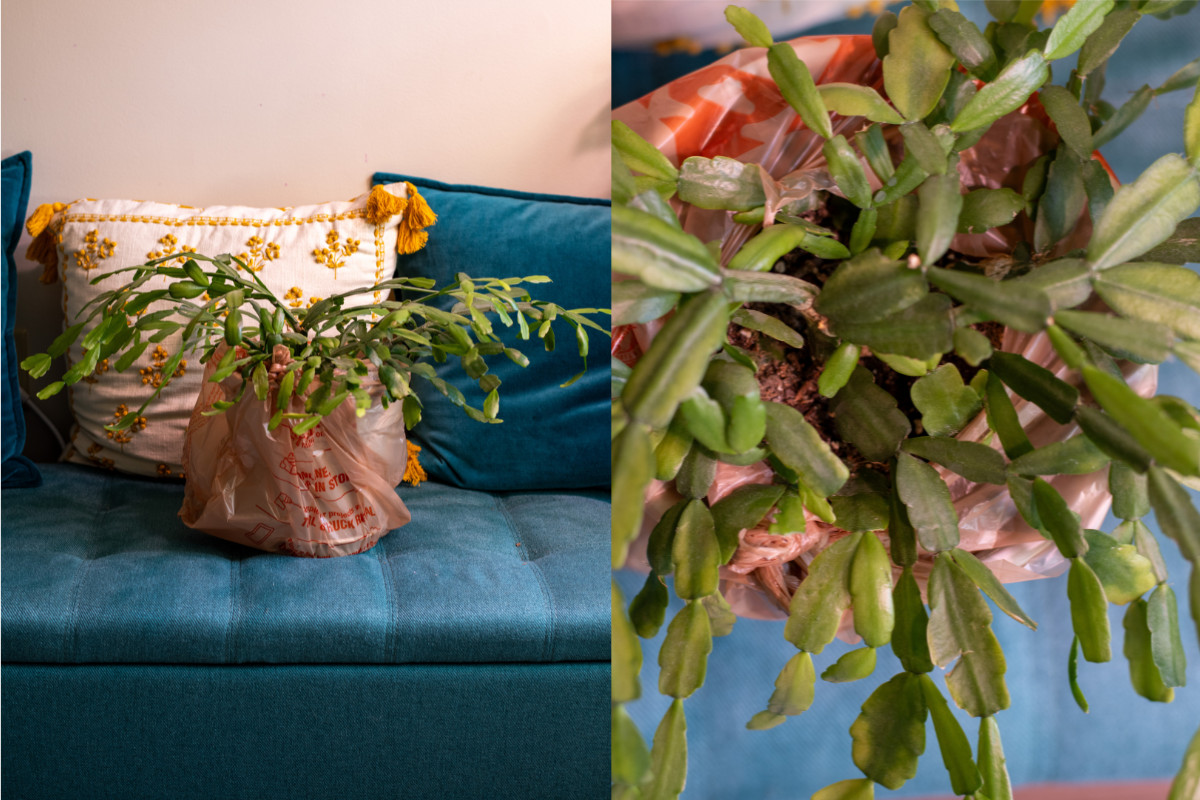 Use lukewarm water. Cold water can shock the leaves and roots, and likewise, hot water can damage the plant, too. Slightly warm water is best. And keep the water pressure low. We’re gently cleaning the plant, not power washing it.
Use lukewarm water. Cold water can shock the leaves and roots, and likewise, hot water can damage the plant, too. Slightly warm water is best. And keep the water pressure low. We’re gently cleaning the plant, not power washing it.
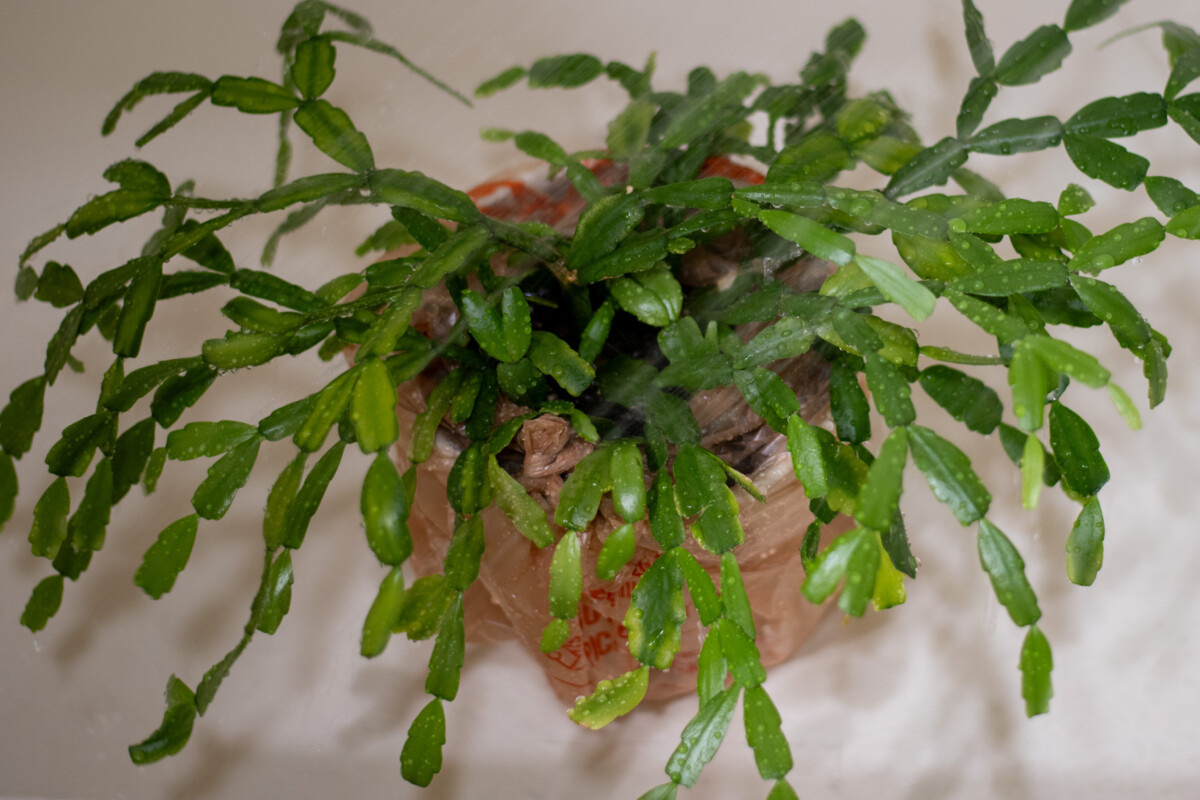
Now, using your sink sprayer or shower sprayer (a detachable shower head is easier, but any shower head will do.), gently spray down the plant. If you are able, spray underneath the segments as well. You can use your fingers to gently wipe away sticky spots of dust.
Let the plant sit in the tub or sink for an hour or two so excess water can drip off of the plant.
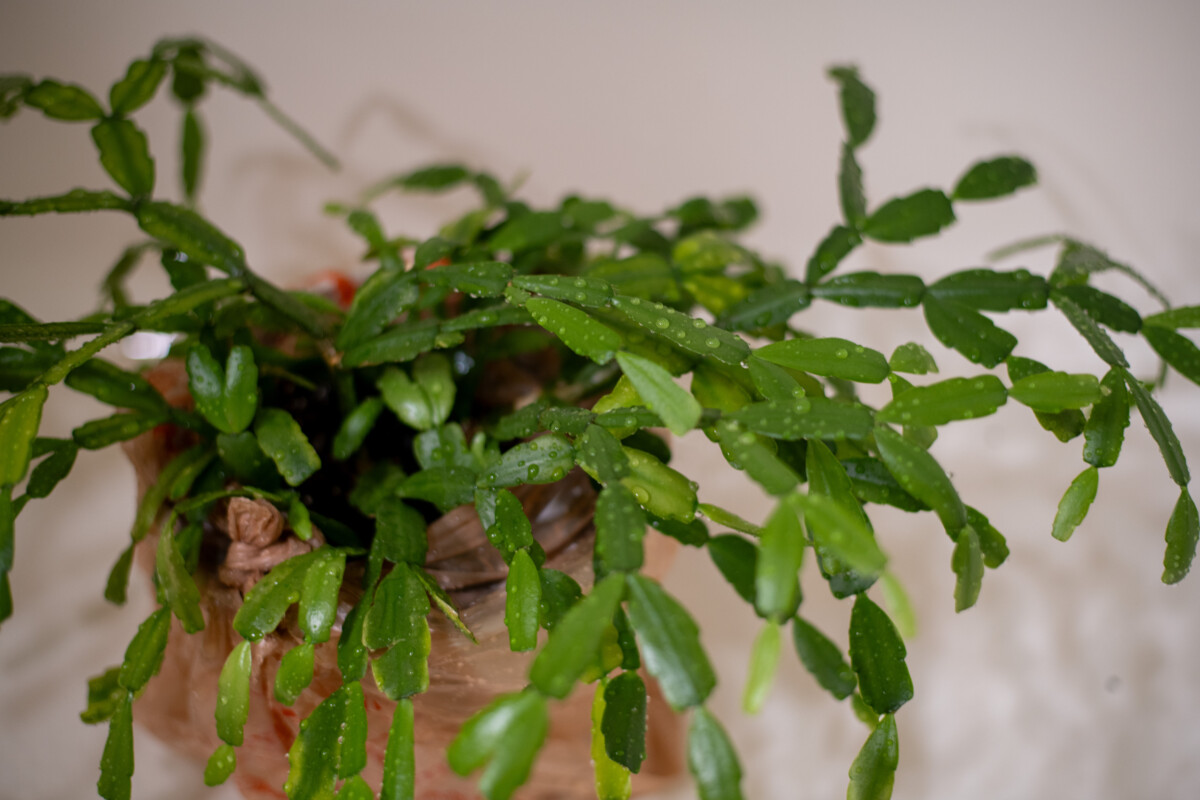
Pick up the plant and carefully give it a good wiggle to shake off excess water droplets. Then, remove the plastic bag and place the plant someplace warm, away from cold drafts, for the rest of the day. The plant needs to dry off completely before you return it to its normal spot.
Finally, make your plant a glass of warm milk and read it a bed time story. Just kidding. But it sure would be nice if someone would give us a nice warm shower after the holidays and let us sleep until the spring.
Easter Cactus Anyone?
 Of course, you don’t have to wait until next year for more Schlumbergera blooms. In a few weeks, you’ll start to find Easter cactuses in stores. If you want another boost of color, grab an Easter cactus. I love the shape of their flowers. Easter cactus care is a bit different but not unfamiliar, and the blooms occur in the spring around, you guessed it, Easter.
Of course, you don’t have to wait until next year for more Schlumbergera blooms. In a few weeks, you’ll start to find Easter cactuses in stores. If you want another boost of color, grab an Easter cactus. I love the shape of their flowers. Easter cactus care is a bit different but not unfamiliar, and the blooms occur in the spring around, you guessed it, Easter.


